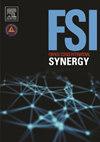中风引起的记忆障碍对书写的影响——一个法医案例研究
Q1 Social Sciences
引用次数: 0
摘要
书写是一种后天获得的神经肌肉技能,它依赖于运动记忆和大脑功能,这使得它很容易受到身体或精神状况造成的损害。这篇论文提出了一个法医案例研究比较中风前和中风后Devnagari写作样本后神经手术记忆受损的病人。本研究旨在评估在这种情况下笔迹鉴定的可行性、可靠性和局限性。结果显示,中风前和中风后的笔迹存在显著差异,表明不同的主模式和可能不同的作者。在没有病史的情况下,本病例可能产生假阴性意见。本研究强调了在法医文件检查中对同期标本、仔细评估和病史整合的需要。当然,这是一个灰色地带,强调需要进一步研究。本文章由计算机程序翻译,如有差异,请以英文原文为准。
Effect of stroke-induced memory impairment on handwriting–A forensic case study
Handwriting is an acquired neuromuscular skill that relies on motor memory and brain function, which make it vulnerable to impairments caused by physical or mental conditions. This paper presents a forensic case study comparing pre- and post-stroke Devnagari writing samples of a post-neurosurgery memory-impaired patient. The study aimed to assess the feasibility, reliability, and limitations of handwriting identification, in such cases. Results revealed that there are significant differences between pre- and post-stroke handwritings, indicating distinct master pattern and potentially different writers. In the absence of medical history, a false negative opinion could have been generated in this case. This study highlights the need for contemporaneous specimens, careful evaluation, and integration of medical history in forensic document examination. It is, certainly, a grey area, emphasizing the need for further research.
求助全文
通过发布文献求助,成功后即可免费获取论文全文。
去求助
来源期刊

Forensic Science International: Synergy
Social Sciences-Law
CiteScore
4.90
自引率
0.00%
发文量
75
审稿时长
90 days
 求助内容:
求助内容: 应助结果提醒方式:
应助结果提醒方式:


